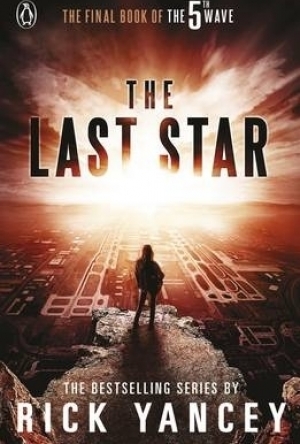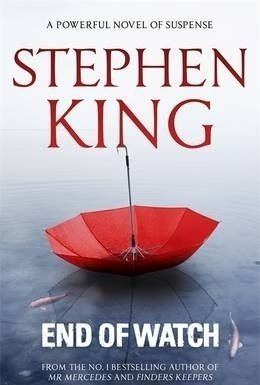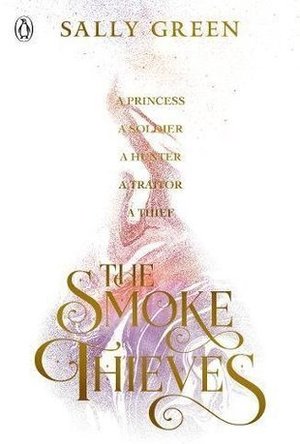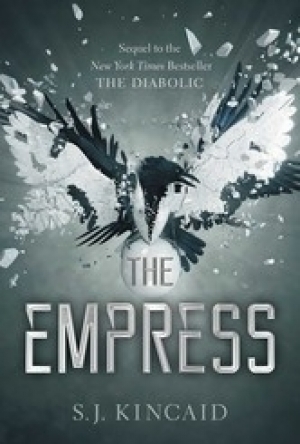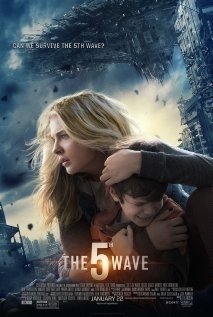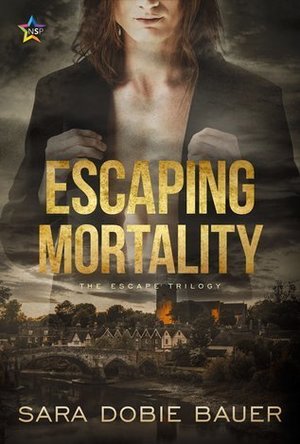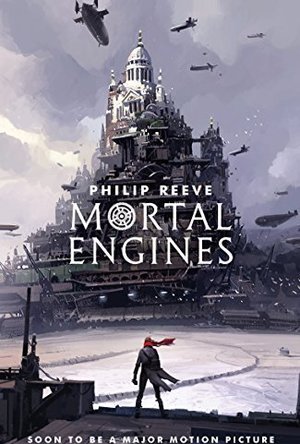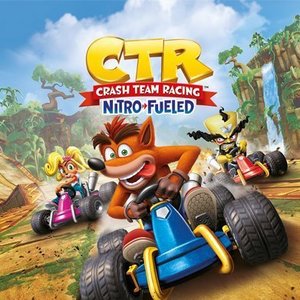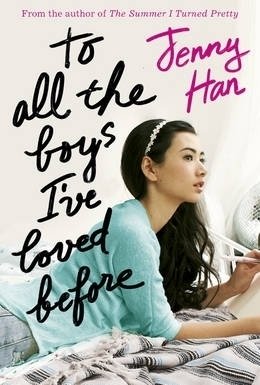Search
Search results
Sheridan (209 KP) rated The Last Star in Books
Jul 9, 2017
It Just Gets Worse...
Contains spoilers, click to show
This has to be the worst of the three... Finally we get headings that tell us which point of view we are reading but that's the only positive of this entire thing. Oh man where do I even start? Seriously it's that terrible. You think this is the last book we are bound to find out why "The Others" have attacked, what they want, or something... but no... nothing you're left to wonder. I think the author tried to give some kind of reasoning but it made about as much sense as a frog in a blender. "They had no answer for Love"... are you f**king kidding me with this s**t?! Ohhhh you're serious...oh dear... The. Worst. Cliche. Ever. Love makes humans what we are, sorry but there's a lot more to it than that... The ending is so unrealistic it hurts, none of that would happen. None. Of. It. *Spoilers* Self absorbed annoying little Cassie would not save the day because downloading tens of thousands of human "memories" would have killed her or at the very least turned her into a vegetable, and if by some impossibility she did survive the pod would not work because seriously you think a bunch of pyscho aliens are going to bargain with a *human* a cockroach species in their minds, the cities would be blown up, humans would be destroyed, Evan Walker would not survive electrocution and Ringer would have miscarried after the beating she recieved, Zombie and the kids would not have survived a *f**king helicopter crash* and Earth as we know it would no longer exist. This trilogy in no way shape or form should have had a fanatically ridiculous "happily ever after" bulls**t ending, but tragically it did... There's quality sci-fi fiction and then there's half-assed "Fifty Shades of the worst writing ever" stories. This whole series was unfortunately the latter... Don't waste your time...or your brain cells...
Acanthea Grimscythe (300 KP) rated End of Watch in Books
May 16, 2018
Whew, I finally finished End of Watch and man... It's been more than twenty-four hours and I'm still messed up about it. King definitely has a way of drawing the reader in, even if said reader is as nihilistic as me when it comes to developing character attachments. Unlike Finders Keepers, book two of the trilogy, King dives right into continuing the story with our main characters, Bill, Holly, and Jerome rather than beginning from the left field as he had with the Saubers family and the Rothstein manuscripts.
The Mercedes Killer himself, Brady Hartsfield, is back thanks to the help of Dr. Babineau. Desiring to truly earn his name as the Suicide Prince, he continues on his rampage of convincing people to kill themselves. His bitterness towards Hodges is stronger than ever and our trio of heroes soon find themselves within the scope of Harsfeild's thirst for blood.
This time around, we aren't really introduced to a whole ton of new characters. In fact, the majority of characters in End of Watch we've already met. Because of that, King is able to jump right into the action and wastes no time in doing what King does best: keeping the reader on the edge of their seat. (Not counting From a Buick 8, of course, but let's not get into that. I'd review it, but I don't even want to pick it up again, let alone buy it.)
Other than that I really don't have a whole lot to say about the final installment in this series that I haven't already said on the books before it. I loved the fact that we were able to immediately return to the story that was left open ended at the conclusion of Mr. Mercedes, rather than being dragged through the filler episode that was Finders Keepers. (I couldn't think of a much better way to word that because before I turned to reviewing books, I spent quite a bit of time reviewing anime and if you've ever watched the mainstream, popular series you know exactly what I mean.) I would have felt alright for the most part if I had skipped Finders Keepers, as it plays a very small role outside of the company being created.
The Mercedes Killer himself, Brady Hartsfield, is back thanks to the help of Dr. Babineau. Desiring to truly earn his name as the Suicide Prince, he continues on his rampage of convincing people to kill themselves. His bitterness towards Hodges is stronger than ever and our trio of heroes soon find themselves within the scope of Harsfeild's thirst for blood.
This time around, we aren't really introduced to a whole ton of new characters. In fact, the majority of characters in End of Watch we've already met. Because of that, King is able to jump right into the action and wastes no time in doing what King does best: keeping the reader on the edge of their seat. (Not counting From a Buick 8, of course, but let's not get into that. I'd review it, but I don't even want to pick it up again, let alone buy it.)
Other than that I really don't have a whole lot to say about the final installment in this series that I haven't already said on the books before it. I loved the fact that we were able to immediately return to the story that was left open ended at the conclusion of Mr. Mercedes, rather than being dragged through the filler episode that was Finders Keepers. (I couldn't think of a much better way to word that because before I turned to reviewing books, I spent quite a bit of time reviewing anime and if you've ever watched the mainstream, popular series you know exactly what I mean.) I would have felt alright for the most part if I had skipped Finders Keepers, as it plays a very small role outside of the company being created.
Hazel (1853 KP) rated The Smoke Thieves in Books
May 8, 2018
Review This ARC was provided by the publisher via NetGalley in exchange for an honest review
From the author of the popular fantasy trilogy, Half Bad comes a brand new historical-fantasy series: The Smoke Thieves. Featuring a princess, a traitor, a soldier, a hunter and a thief, Sally Green’s fictional world is a dangerous place for these five teenagers. From demons to tyrannical fathers, they must do their best to overcome every obstacle placed in their way to survive a world that is destined for conflict.
The five main characters are a mixed bag of personalities and status. Princess Catherine is preparing for her arranged marriage, which aims to politically unite two nations, or so she believes. Her brutally ambitious father, on the other hand, has other ideas. Ambrose, Catherine’s guard and a traitor to her father, escapes death by chasing after Catherine with news of her father’s real plans.
Meanwhile, March, a soldier whose entire family and heritage were wiped out in a war, aims to get revenge by finding his king’s illegitimate son and only heir, however, he does not anticipate the prince being the naïve thief, Edyon. March and Edyon travel through the country in the company of an elderly man until they are ambushed by a demon hunter and his thirteen-year-old assistant, Tash. All Tash wants to do is hunt demons, collect their drug-like smoke and sell it so she can buy a pair of boots, but fate has other plans, and it is all because of demon smoke.
Coming from all walks of life, the unlikely characters join forces at the conclusion of the book, preparing to face the biggest battle of their young lives. The first book of the series is an exciting introduction to the action promised in the following novels. Slow to start but growing increasingly interesting, The Smoke Thieves is an engaging story with fantastic main characters.
As a work of historical fantasy, The Smoke Thieves is a welcome change from the contemporary fantasy Sally Green has previously written. This book suggests the author has great ideas to come in the near future.
From the author of the popular fantasy trilogy, Half Bad comes a brand new historical-fantasy series: The Smoke Thieves. Featuring a princess, a traitor, a soldier, a hunter and a thief, Sally Green’s fictional world is a dangerous place for these five teenagers. From demons to tyrannical fathers, they must do their best to overcome every obstacle placed in their way to survive a world that is destined for conflict.
The five main characters are a mixed bag of personalities and status. Princess Catherine is preparing for her arranged marriage, which aims to politically unite two nations, or so she believes. Her brutally ambitious father, on the other hand, has other ideas. Ambrose, Catherine’s guard and a traitor to her father, escapes death by chasing after Catherine with news of her father’s real plans.
Meanwhile, March, a soldier whose entire family and heritage were wiped out in a war, aims to get revenge by finding his king’s illegitimate son and only heir, however, he does not anticipate the prince being the naïve thief, Edyon. March and Edyon travel through the country in the company of an elderly man until they are ambushed by a demon hunter and his thirteen-year-old assistant, Tash. All Tash wants to do is hunt demons, collect their drug-like smoke and sell it so she can buy a pair of boots, but fate has other plans, and it is all because of demon smoke.
Coming from all walks of life, the unlikely characters join forces at the conclusion of the book, preparing to face the biggest battle of their young lives. The first book of the series is an exciting introduction to the action promised in the following novels. Slow to start but growing increasingly interesting, The Smoke Thieves is an engaging story with fantastic main characters.
As a work of historical fantasy, The Smoke Thieves is a welcome change from the contemporary fantasy Sally Green has previously written. This book suggests the author has great ideas to come in the near future.
Goddess in the Stacks (553 KP) rated The Empress (The Diabolic, #2) in Books
Jul 31, 2018
The Empress is an excellent follow-up to The Diabolic; Tyrus and Nemesis have claimed the throne, but now they have to keep it. Due in part to ancient machines, that is harder than it sounds. Despite Nemesis' cold practicality, she is also somewhat idealistic. She picks freeing the servitors (slaves, basically) as her big goal for when she becomes Empress - with shocking results.
Tyrus' and Nemesis' combined goal is to bring science back to the people; in the first book we were introduced to the concept of ruined space - space that had been torn apart by hyperspace jumps and now consumes everything it touches. But since the Helionic religion had banned all science, no one knew how to do anything about it other than avoid it. Their solution is to go to the head of the religion itself and talk him into reversing that decree. In doing so, we learn a lot more about why the empire is floating out in space, and why the decree was given.
It's always hard to talk about middle books in trilogies without giving too much away about the first book, or the plot as a whole. So I'll just say that, like the first book, this kept me guessing, and the twists of the plot came as incredibly shocking surprises. S.J. Kincaid has an amazing ability with plot twists. And the end of this book - oh man. I do not want to believe that things truly are as bad as they seem. I want this to be a redemption story. But at the same time, things have been done that can't be undone.
If you read and liked The Diabolic, you should continue the trilogy with The Empress. However, while The Diabolic ends in a way that could leave it as a standalone, The Empress ends on a clear cliffhanger. The third book has neither a title nor a cover yet, but is supposed to release this fall? I'm guessing that will be delayed, which is bad, because I NEED IT.
You can find all my reviews at http://goddessinthestacks.wordpress.com
Tyrus' and Nemesis' combined goal is to bring science back to the people; in the first book we were introduced to the concept of ruined space - space that had been torn apart by hyperspace jumps and now consumes everything it touches. But since the Helionic religion had banned all science, no one knew how to do anything about it other than avoid it. Their solution is to go to the head of the religion itself and talk him into reversing that decree. In doing so, we learn a lot more about why the empire is floating out in space, and why the decree was given.
It's always hard to talk about middle books in trilogies without giving too much away about the first book, or the plot as a whole. So I'll just say that, like the first book, this kept me guessing, and the twists of the plot came as incredibly shocking surprises. S.J. Kincaid has an amazing ability with plot twists. And the end of this book - oh man. I do not want to believe that things truly are as bad as they seem. I want this to be a redemption story. But at the same time, things have been done that can't be undone.
If you read and liked The Diabolic, you should continue the trilogy with The Empress. However, while The Diabolic ends in a way that could leave it as a standalone, The Empress ends on a clear cliffhanger. The third book has neither a title nor a cover yet, but is supposed to release this fall? I'm guessing that will be delayed, which is bad, because I NEED IT.
You can find all my reviews at http://goddessinthestacks.wordpress.com
Gareth von Kallenbach (980 KP) rated The 5th wave (2016) in Movies
Jun 19, 2019
Films about invaders from space have been a staple of film and television since the golden age of cinema. Playing on many Cold War fears in the aftermath of W.W.II, aliens bent on destruction has been an enduring staple of cinematic culture.
In the new film “The 5th Wave” which is based on the book of the same name, Chloe Grace Moretz plays Cassie, a teen who has her entire life turned upside down by the arrival of a mysterious craft. A few days after the arrival of “the Others” as they are known, a pulse wipes out all electronics on the planet. This is soon followed by tsunamis and earthquakes as well as disease and death.
Cassie along with her father and brother find shelter but their community is soon disrupted by the arrival of the military who say that the invaders are now amongst them and posing as humans.
The military under the leadership of Colonel Vosch (Liev Schreiber) has a plan to train the children to spot and defeat the alien invaders thus setting in motion the main conflict of the film. The secondary story consists of Cassie attempting to reunite with her family and her relationship with a mysterious stranger named Evan (Alex Roe).
The film is clearly aimed at a young adult market and as such I was able to spot the big twist in the film a long ways off as the clues were blatantly obvious to me. That being said, the film is better than you might expect and being the first chapter in a trilogy of books does set up the possibilities of sequels.
The dialogue and acting is pretty groan inducing at times, but again, remember the target audience, the film should entertain and it is nice to see Moretz deliver a solid performance in what in many ways could have been a limited role.
While it is not going to make you forget “The Hunger Games” anytime soon, the film is still a decent escape for those willing to overlook the flaws.
http://sknr.net/2016/01/22/the-5th-wave/
In the new film “The 5th Wave” which is based on the book of the same name, Chloe Grace Moretz plays Cassie, a teen who has her entire life turned upside down by the arrival of a mysterious craft. A few days after the arrival of “the Others” as they are known, a pulse wipes out all electronics on the planet. This is soon followed by tsunamis and earthquakes as well as disease and death.
Cassie along with her father and brother find shelter but their community is soon disrupted by the arrival of the military who say that the invaders are now amongst them and posing as humans.
The military under the leadership of Colonel Vosch (Liev Schreiber) has a plan to train the children to spot and defeat the alien invaders thus setting in motion the main conflict of the film. The secondary story consists of Cassie attempting to reunite with her family and her relationship with a mysterious stranger named Evan (Alex Roe).
The film is clearly aimed at a young adult market and as such I was able to spot the big twist in the film a long ways off as the clues were blatantly obvious to me. That being said, the film is better than you might expect and being the first chapter in a trilogy of books does set up the possibilities of sequels.
The dialogue and acting is pretty groan inducing at times, but again, remember the target audience, the film should entertain and it is nice to see Moretz deliver a solid performance in what in many ways could have been a limited role.
While it is not going to make you forget “The Hunger Games” anytime soon, the film is still a decent escape for those willing to overlook the flaws.
http://sknr.net/2016/01/22/the-5th-wave/
Debbiereadsbook (1669 KP) rated Escaping Mortality (Escape Trilogy #3) in Books
Jan 28, 2019
a very fitting end!!
I was gifted my copy of this book, direct from the author, that I write a review was not required. But since I read and reviewed the other two parts, it's only fitting I review this one, too, don't you think??
This is the third and final book in the Escape trilogy and you rally MUST read the other two books first. You need to know how Edmund and Andrew found themselves in the middle of the Atlantic Ocean, looking for an Elder!
Only Andrew has a say in these books, and THIS one, more than the other two, I NEEDED Edmund I really did! Some things happen here, that made me want to hear what he had to say, so bloody bad and he doesn't. I KNEW that he probably would not have a say, but a girl can hope, right?
Edmund and Andrew and their friends are on a boat to England and to find the Elder. Once the Elder has located and Edmund turned, they continue on to visit Edmund's sick mother. The "friend" looking after her is vile and dealing with her and the gifts the Elder has bestowed upon him, pushes Edmund to his limits. Then WHY the Elder gave Edmund these gifts becomes clear and Edmund has a choice: Andrew or the Elder.
I found this one a little less sexy than the others, but a whole lot more bloody! The way Edmund deals with the friend was scary, but needed I think. The Elder? Well he choose his path, once it became clear that there is, and there will only ever be, ONE person for Edmund.
I did not see what the "friend" was up to, looking after Edmund's mother, nor did I see what the Elder had planned fro Edmund, so it was nice to be surprised by those things.
I LOVED the epilogue! Seriously well played with that one!
I have enjoyed these three short bursts of Andrew and Edmund, but I really think had Edmund been given a voice too, these would have been all 5 star reads.
Thank you, for letting me read your books, Ms Dobie Bauer!
4 solid stars
**same worded review will appear elsewhere**
This is the third and final book in the Escape trilogy and you rally MUST read the other two books first. You need to know how Edmund and Andrew found themselves in the middle of the Atlantic Ocean, looking for an Elder!
Only Andrew has a say in these books, and THIS one, more than the other two, I NEEDED Edmund I really did! Some things happen here, that made me want to hear what he had to say, so bloody bad and he doesn't. I KNEW that he probably would not have a say, but a girl can hope, right?
Edmund and Andrew and their friends are on a boat to England and to find the Elder. Once the Elder has located and Edmund turned, they continue on to visit Edmund's sick mother. The "friend" looking after her is vile and dealing with her and the gifts the Elder has bestowed upon him, pushes Edmund to his limits. Then WHY the Elder gave Edmund these gifts becomes clear and Edmund has a choice: Andrew or the Elder.
I found this one a little less sexy than the others, but a whole lot more bloody! The way Edmund deals with the friend was scary, but needed I think. The Elder? Well he choose his path, once it became clear that there is, and there will only ever be, ONE person for Edmund.
I did not see what the "friend" was up to, looking after Edmund's mother, nor did I see what the Elder had planned fro Edmund, so it was nice to be surprised by those things.
I LOVED the epilogue! Seriously well played with that one!
I have enjoyed these three short bursts of Andrew and Edmund, but I really think had Edmund been given a voice too, these would have been all 5 star reads.
Thank you, for letting me read your books, Ms Dobie Bauer!
4 solid stars
**same worded review will appear elsewhere**
Goddess in the Stacks (553 KP) rated Mortal Engines (The Hungry City Chronicles, #1) in Books
Dec 25, 2018
Through this entire book, I kept thinking "this feels like Valerian and the City of a Thousand Planets." It's a completely different setting, and a different plot, but it had the same atmosphere. Rollicking action, fantastical premise, crazy setting, huge machines with entire worlds within them. I loved Valerian - it may not have been a critically great movie, and I don't think the leads had much chemistry, but the movie was just FUN. And that's how Mortal Engines is, too.
It's a crazy world, where cities have become mobile - think Howl's Moving Castle - and they chase each other across a barren world, devouring each other for resources in a social order they call Municipal Darwinism. Some cities, like London, are huge, with six main levels, not really counting the Gut, or the center of the machinery. Other towns are small, one or two levels crawling along trying to avoid the notice of the larger, faster cities. The peoples of the Traction Cities think people who live in statics (stationary cities, or, horror of horrors, right on the ground!) or people who are part of the Anti-Traction League, are crazy barbarians. And then there are the airship captains and crews, based out of the one floating city.
It is a crazy steampunk world, and Tom Natsworthy stumbles into a conspiracy plot by being in the wrong place at the wrong time. But as he travels with Hester across the wasteland, trying to survive their pursuers and avert catastrophe, he learns more about her, and more about how the world actually works.
I absolutely adore the last two sentences of the book, and I'm going to post those here because they aren't terribly spoilery. And they're fantastic.
"You aren't a hero, and I'm not beautiful, and we probably won't live happily ever after," she said. "But we're alive, and together, and we're going to be all right."
This book is the first of a quartet, and Reeve also wrote a prequel trilogy, so there's actually three books before AND after this book. I'll probably check my library for them, because I REALLY enjoyed this book.
You can find all my reviews at http://goddessinthestacks.com
It's a crazy world, where cities have become mobile - think Howl's Moving Castle - and they chase each other across a barren world, devouring each other for resources in a social order they call Municipal Darwinism. Some cities, like London, are huge, with six main levels, not really counting the Gut, or the center of the machinery. Other towns are small, one or two levels crawling along trying to avoid the notice of the larger, faster cities. The peoples of the Traction Cities think people who live in statics (stationary cities, or, horror of horrors, right on the ground!) or people who are part of the Anti-Traction League, are crazy barbarians. And then there are the airship captains and crews, based out of the one floating city.
It is a crazy steampunk world, and Tom Natsworthy stumbles into a conspiracy plot by being in the wrong place at the wrong time. But as he travels with Hester across the wasteland, trying to survive their pursuers and avert catastrophe, he learns more about her, and more about how the world actually works.
I absolutely adore the last two sentences of the book, and I'm going to post those here because they aren't terribly spoilery. And they're fantastic.
"You aren't a hero, and I'm not beautiful, and we probably won't live happily ever after," she said. "But we're alive, and together, and we're going to be all right."
This book is the first of a quartet, and Reeve also wrote a prequel trilogy, so there's actually three books before AND after this book. I'll probably check my library for them, because I REALLY enjoyed this book.
You can find all my reviews at http://goddessinthestacks.com
Gareth von Kallenbach (980 KP) rated the PlayStation 4 version of Crash Team Racing: Nitro Fueled in Video Games
Jul 9, 2019
Rev Your Engines
Rev up your engines as your favorite gaming Marsupial is back with Crash Team Racing Nitro-Fueled. The game is a remastered version of a prior release and like the amazing N Sane Trilogy; gives a new life to the game by taking advantage of the better graphics and framerates offered by the new systems.
Playing in a campaign or online mode, players can pick which character they wish to use and unlike the previous release; are not locked into completing a series with that character as they can change up as they wish.
Players must win a track in order to move on to the next track which is accessed by driving a portal located on an island which also serves as a practice area and a way to access Boss Races and other areas when key objectives have been reached.
The tracks are very detailed and great fun. From an intense sewer track to some exotic locales and temples; there are plenty of locales for everyone to enjoy.
If you have played a racing game before you will soon get the hang of the controls and mechanics of the game. Of course there are plenty of traps and obstacles for players to deal with and there are power ups with weapons and other enhancements to give player an edge which will be needed as the competition is intense; even on the lower difficulty settings.
There are also crates of fruit which can be collected and will allow players to customize their vehicles beyond cosmetic changes which will be needed as player’s progress.
The multiplayer aspects of the game were great as it was very easy to connect and play and aside from some loading screen waits, the game moves fast and looks and sounds amazing.
If you are a fan of Crash Bandicoot and love a good racing game then this is simply a must own as it is not only fun to play; but is one of the most entertaining and enjoyable games in
the genre.
http://sknr.net/2019/07/09/crash-team-racing-nitro-fueled-2/
Playing in a campaign or online mode, players can pick which character they wish to use and unlike the previous release; are not locked into completing a series with that character as they can change up as they wish.
Players must win a track in order to move on to the next track which is accessed by driving a portal located on an island which also serves as a practice area and a way to access Boss Races and other areas when key objectives have been reached.
The tracks are very detailed and great fun. From an intense sewer track to some exotic locales and temples; there are plenty of locales for everyone to enjoy.
If you have played a racing game before you will soon get the hang of the controls and mechanics of the game. Of course there are plenty of traps and obstacles for players to deal with and there are power ups with weapons and other enhancements to give player an edge which will be needed as the competition is intense; even on the lower difficulty settings.
There are also crates of fruit which can be collected and will allow players to customize their vehicles beyond cosmetic changes which will be needed as player’s progress.
The multiplayer aspects of the game were great as it was very easy to connect and play and aside from some loading screen waits, the game moves fast and looks and sounds amazing.
If you are a fan of Crash Bandicoot and love a good racing game then this is simply a must own as it is not only fun to play; but is one of the most entertaining and enjoyable games in
the genre.
http://sknr.net/2019/07/09/crash-team-racing-nitro-fueled-2/
Veronica Pena (690 KP) rated To All the Boys I've Loved Before in Books
Jan 19, 2020
I have never in my life finished a book in one night and I read this entire novel in one sitting. As soon as I picked it up, I couldn't put it down. I love the way it was written, the characters, the plotline is so fresh, unlike anything else, this novel is amazing. I am seriously so shocked.
I think what makes this book so great is how real it is. I remember being 16, Lara Jean's age, and falling in love for the first time and what that felt like and how it kind of creeps up on you and then all at once, it just is there and it's all-consuming and this thing you can't run away from. I felt that in Lara Jean and Peter. I also think the hard part about writing a book as an adult that is about teenagers is that you can lose that feeling. You can forget what it feels like to be that age, to live in those moments, to have those feelings. I don't feel like that with this novel. It feels very real and very true. It's definitely a story that can take place in almost any time, which I really love. Obviously, if it was a pre-cell phone time, texting wouldn't be there, but other than that, it's definitely something that could hold up and I think those are the best stories.
I thoroughly enjoyed the movie when I saw it the first time and I'm eager to watch it again and compare it to the book, but I'm even more excited to read the second book in this trilogy and figure out where the story goes next. I've managed this far along without having any spoilers of what happens in the next 2 books and that I'm very proud of.
Overall, I really enjoyed this novel. I think it was beautifully written, it's the perfect ending, or cliffhanger rather, and I think it's a true story about high schoolers and not one that is so far removed, it's hard to relate. I hope the second book keeps me as hooked as this one did.
I think what makes this book so great is how real it is. I remember being 16, Lara Jean's age, and falling in love for the first time and what that felt like and how it kind of creeps up on you and then all at once, it just is there and it's all-consuming and this thing you can't run away from. I felt that in Lara Jean and Peter. I also think the hard part about writing a book as an adult that is about teenagers is that you can lose that feeling. You can forget what it feels like to be that age, to live in those moments, to have those feelings. I don't feel like that with this novel. It feels very real and very true. It's definitely a story that can take place in almost any time, which I really love. Obviously, if it was a pre-cell phone time, texting wouldn't be there, but other than that, it's definitely something that could hold up and I think those are the best stories.
I thoroughly enjoyed the movie when I saw it the first time and I'm eager to watch it again and compare it to the book, but I'm even more excited to read the second book in this trilogy and figure out where the story goes next. I've managed this far along without having any spoilers of what happens in the next 2 books and that I'm very proud of.
Overall, I really enjoyed this novel. I think it was beautifully written, it's the perfect ending, or cliffhanger rather, and I think it's a true story about high schoolers and not one that is so far removed, it's hard to relate. I hope the second book keeps me as hooked as this one did.

DRAGON QUEST II
Games
App
The second instalment in the celebrated Dragon Quest series finally comes to mobile! Explore fair...
